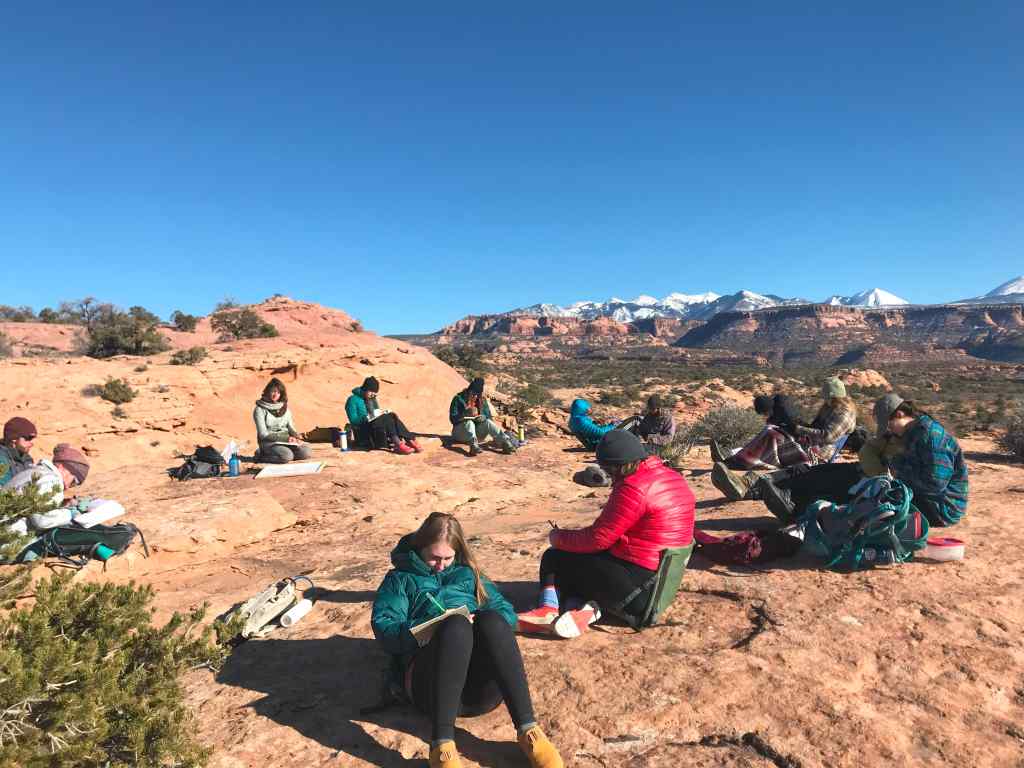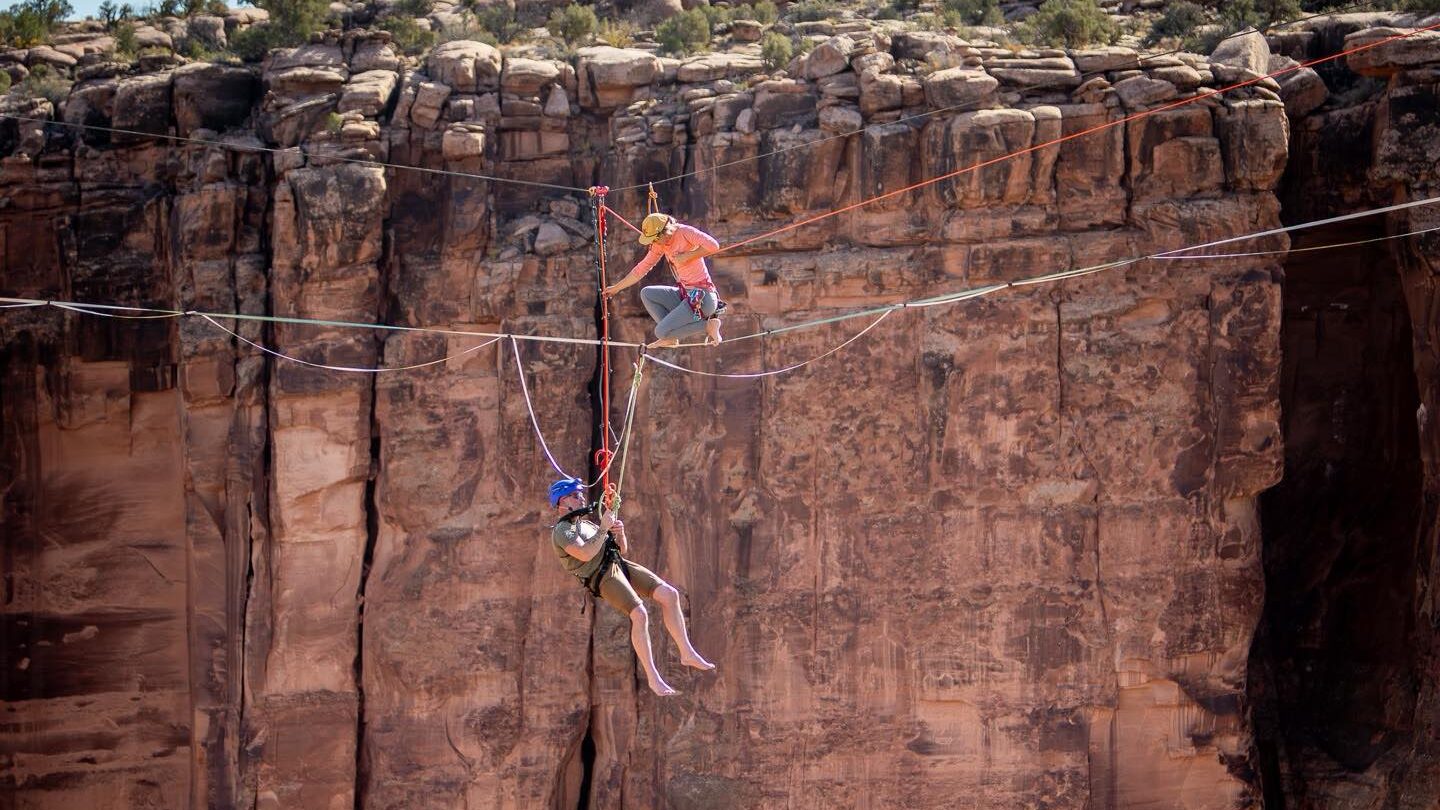Some information may be outdated.
Go on a hike for your mental health
It was 2021, and the COVID-19 pandemic was worsening an already dire national
loneliness and isolation epidemic, when Canyonlands Field Institute’s Alison Anders resolved to do something to boost mental health locally.
“When I first moved here, I really struggled to make friends because of the pandemic,” Anders says. “I was realizing how important time outside was for my mental health and how that had become an outlet for me to process things.”

Anders developed CFI’s free Mental Health Hike program together with former CFI guide, Liz Bercel, who has a background in wilderness therapy. The program brings participants to trails around Moab and teaches skills to improve physical, mental and emotional wellbeing. Each hike has a different theme, ranging from topics like communication and listening to gratitude.
“Typically, Alison and I will get together and brainstorm ideas for what we think the community might benefit from,” Bercel says. “Each hike, we seek feedback for what people want to learn more about.”
The hikes typically run from 11 a.m. to 4 p.m. on the first Sunday of each month. This year’s series started in April and will run through December.
Some months, Bercel and Anders plan to bring in guest experts to help facilitate. May’s event focused on gratitude with Sydney Williams, a speaker, author and founder of the nonprofit Hiking My Feelings. Anders says they’re currently on the search for licensed counselors, social workers, mental health providers or others with expertise in the year’s themes.
The hikes are usually about a mile or two long, with plenty of breaks for rest and reflection.
“We’ll maybe walk for like 15 minutes, and then we’ll stop and do a group activity. Hike for another 15 minutes, stop, do some solo journaling,” Anders says. “We don’t want it to be physically challenging for people. We don’t want that to be a barrier.”
Both Anders and Bercel stress that the hikes are not group therapy sessions—or a place to process trauma. Rather, they’re an opportunity for open discussion and to connect with others.
“I think what people are looking for most is just a space to talk and share experiences,” Bercel says. “A space that is accepting and open and safe and non-judgmental.”
Most hikers joining have been local, but Anders says occasionally they get visitors from Grand Junction. Ages of participants have ranged from about 25 to 65.
“I really like the intergenerational aspect of it,” Anders says. “It’s cool to hear the perspectives of people in different times of their life.”
CFI’s next Mental Health Hike will take place on June 2 and will focus on the mind-body connection. Advanced registration is required; for more information go to cfimoab.org.
Appreciate the coverage? Help keep local news alive.
Chip in to support the Moab Sun News.




